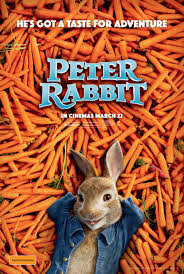Annihilation
Posted on February 22, 2018 at 5:12 pm
B +| Lowest Recommended Age: | Mature High Schooler |
| MPAA Rating: | Rated R for violence, bloody images, language and some sexuality |
| Profanity: | Some strong language |
| Alcohol/ Drugs: | None |
| Violence/ Scariness: | Extended peril and violence with many characters injured and killed, many grisly and disturbing images, animal attacks, guns, explosives, suicide |
| Diversity Issues: | None |
| Date Released to Theaters: | February 23, 2018 |
| Date Released to DVD: | May 28, 2018 |

“Annihilation” is based on the Nebula Award-winning first volume of Jeff VanderMeer’s Southern Reach Trilogy, adapted by director Alex Garland (“Ex Machina”). Natalie Portman plays Lena, a biologist and Army veteran, who joins a group of woman investigating an ominous anomaly the government is calling the shimmer. It looks like an rainbow prismed oil spill in the air. An area around a lighthouse is glowing and oscillating. Is it aliens? Is it God? Is it dangerous? Well, take a look at the title of the movie.
Whatever it is, it is expanding rapidly, posing a threat to pretty much everywhere. “The silence around it is louder than usual,” one observer notes. All missions, manned and unmanned, to investigate have produced no information and no human or drone sent inside has come back. Until one, an Army sergeant named Kane (Oscar Isaac), Lena’s husband. A year after he left, he shows up at their home, dazed and critically ill.
And so Lena joins the next group going inside, along with Dr. Ventress (Jennifer Jason Leigh), a psychologist leading the team, Anya (Gina Rodriguez), a paramedic, Sheppard (Tuva Novotny), an anthropologist, and Josie (Tessa Thompson), a shy physicist. The film is told in flashback, as Lena is being interrogated by a man in a hazmat suit, so we know that she will be the only one of the group to survive. We know what happened. We will see how.
The New Yorker calls VanderMeer “the King of Weird Fiction” and the Southern Reach trilogy “arresting, unsettling, and unforgettable” and “meditations on the theme of epistemic pessimism, in the tradition of Kafka.” I think what that means is that many science fiction and fantasy writers, even the most imaginative and compelling, base their stories on extrapolating what is already here, whether apocalyptic destruction of the planet due to environmental neglect or aliens who are a reflection of whatever geopolitical issues we are struggling with.
Generally, though, the fundamental rules, the ones we take for granted so much we are not even aware we are taking them for granted, apply, including the rules of dramatic fiction that go back thousands of years. Hubris invites catastrophe. Bad guys want to control everything. Courage and honor triumph. VanderMeer, let’s just say, goes another way. Instead of taking what we have and know and projecting it in a more extreme form, he takes what we have and know and bends reality — and our minds — to make us think about how much we do not know. Inter-species mutations are occuring, suggesting that the shimmer somehow dissolves what we think of as immutable barriers, the ones that define our sense of the world and our sense of ourselves. “It’s literally not possible,” a team member says. “It’s literally what’s happening,” another responds.
One of the first questions we hear at the beginning of the film, as Lena is being something between interrogated and debriefed, is “What did you eat?” Her group had rations for two weeks but survived for months. “I don’t remember eating,” she says. Later we will see the group, dazed, trying to remember what has happened and trying to figure out how much time has gone by based on how much food is gone. They do not know where they are or how long they have been there. Their communications technology does not work. Even the most basic technology, a compass directed only by the magnetism of the North Pole, does not work. They are literally disoriented. The women are there because of their expertise in science, but they cannot even manage some of the most fundamental cognitive tasks. They are not sure whether they cn trust each other. They are there to observe and report but they cannot trust their perceptions or analysis.
And we may not be able to trust our own. This movie puts its cards on the table with an opening that reveals the end. This will be an escape room/haunted house set in the wilds of the Florida swamp story with Lena as the “final girl,” the last woman standing. “It all goes back to the first cell,” we hear Lena tell her class of biology students. Cells do not die; they reproduce. Everything alive is a piece of the first cell. As the women on this mission have to decide whether they want to understand or fight the shimmer, another option presents itself.
Garland uses luscious, even seductive visuals in the verdant Florida swamp setting to beguile and horrify us, sometimes both at once. This is more than mind-bending; it is mind-expanding, something of an intellectual shimmer creating a cognitive distortion of its own.
Parents should know that this film includes extended peril and violence with many characters injured and killed and some very grisly and disturbing images, guns, grenade, fire, suicide, animal attacks, some strong language, and explicit sexual situations.
Family discussion: Why did Lena say she owed it to Kane to go on the mission? Why didn’t she tell the other women about her relationship to Kane? What would you do if you were in charge of containing the Shimmer? What is the relationship of this story to Lena’s lecture about cells?
If you like this, try: “Arrival,” “Invasion of the Body Snatchers,” “Solaris,” “2001: A Space Odyssey,” “Midnight Special,” and “Coherence”








